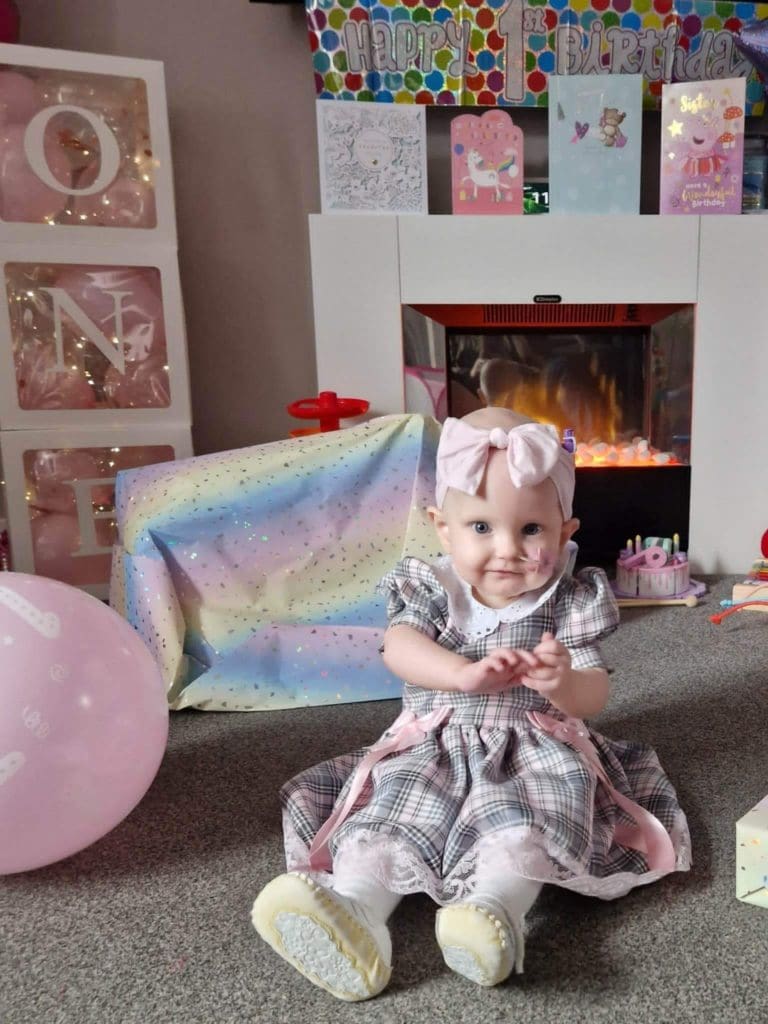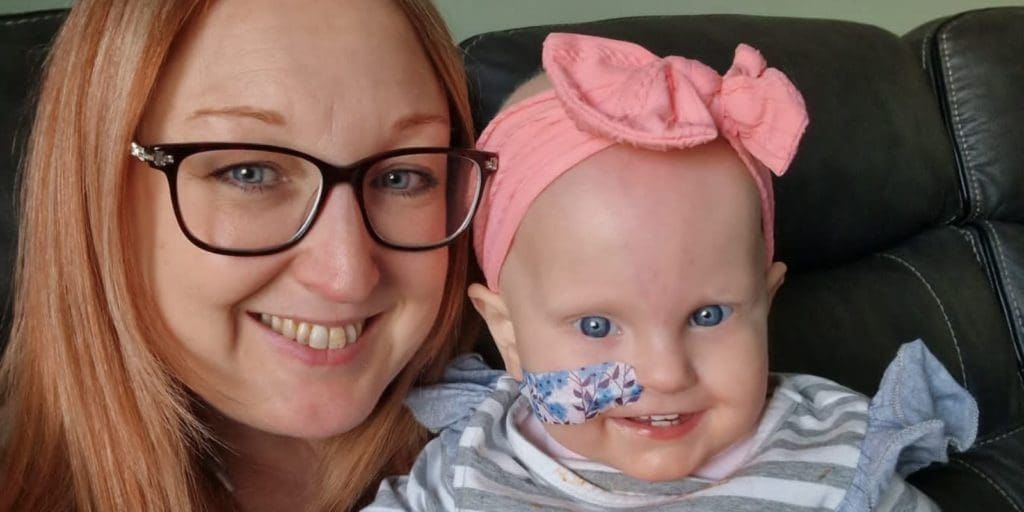A North Wales woman whose one-year-old daughter is living with a rare brain tumour has welcomed news of a research centre.
Mum-of-three Corinne Wardle, from Flint, has called the launch of the Brain Tumour Research Centre of Excellence at the Institute of Cancer Research (ICR) “amazing”. It’s after her baby daughter Molly Wardle-Hampton, was diagnosed with a rare and aggressive ependymoma (a type of high-grade glioma) after a radical change in the size of her head.
She said: “Molly endured surgery before completing almost a year of chemotherapy. At one point, doctors didn’t think she’d make it through the night. We’ve encountered complications that come with such an aggressive diagnosis and Molly has been left with life-changing injuries as a result of the tumour, including hearing loss.
“The launch of the new research Centre gives hope that something more can be developed to help children and their families who are facing such a terrifying diagnosis.”
The Centre will act as a crucial bridge connecting worldwide research and analysing findings which will help inform and enable the setting up of much-needed clinical trials. The £2.5m funding agreement sets out to identify new treatments for high-grade glioma brain tumours occurring in children and young adults.

Corinne, 38, who works as a staff nurse, added: “Considering that historically just 1% of the national spend on cancer research has been allocated to this devastating disease it’s brilliant to see this development in brain tumour research. We have first-hand experience as to what it is like to live with a rare type of tumour and although Molly is now on a trial – it’s still not a cure. We know many other patients that have little to no option of treatment. It’s a topic which is close to my heart. Hopefully this will show that when money is spent on research, it can make a huge difference to people’s lives.”
One in three people knows someone affected by a brain tumour and they kill more children than leukaemia, yet historically just 1% of the national spend on cancer research has been allocated to brain tumours.
Professor of Childhood Brain Tumour Biology Chris Jones, who is leading the team at The Institute of Cancer Research, said: “We are delighted that Brain Tumour Research is backing our research into finding better treatments for children with brain cancer. These tumours are incredibly resistant to current treatments and children are in desperate need of new options.
“Our lab is working day in, day out to unravel the underlying biology of these dreadful tumours, and hopefully uncover new ways to attack them. This invaluable support from Brain Tumour Research will help to fuel new discoveries and pave the way to smarter, kinder treatments for children diagnosed with brain tumours.”
Dr Karen Noble, director of research, policy and innovation at Brain Tumour Research, said: “It’s desperately sad to hear about Molly’s diagnosis and we wish her well in her ongoing treatment.
“The announcement of the fourth Centre marks a major step towards our vision of finding a cure for all types of brain tumours. This Centre will act as an international hub for the development of new treatments for children and young adults with these terrible brain tumours. Improving outcomes for children with these types of tumour is crucial if we are to make progress and bring much-needed hope to so many”
Brain Tumour Research funds sustainable research at dedicated centres in the UK. It also campaigns for the Government and the larger cancer charities to invest more in research into brain tumours in order to speed up new treatments for patients and, ultimately, to find a cure. The charity is the driving force behind the call for a national annual spend of £35 million in order to improve survival rates and patient outcomes in line with other cancers such as breast cancer and leukaemia and is also campaigning for greater repurposing of drugs.

